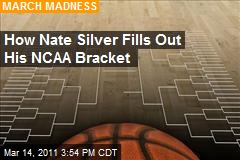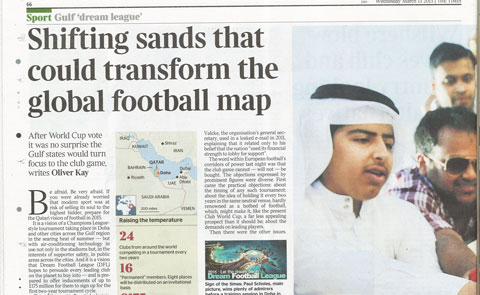Reuters reports what may be an important development in the ongoing revelations of FIFA corruption and efforts to hold the organization to account:
Since at least the summer of 2011, the FBI has been examining more than $500,000 (330,600 pounds) in payments made by the Caribbean Football Union (CFU) over the past 20 years to an offshore company headed by top U.S. football official Chuck Blazer. That was a period during which Jack Warner was also head of the CFU, a position he held from the early 1980s until 2011.The details and the precise nature of US interest or jurisdiction over CONCACAF or FIFA issues remains murky.
The precise reasons for many of those payments is unclear. In 2011, Blazer said that the payments were meant to be repayments to him by Warner of "a significant amount of money" which Blazer said he loaned to Warner in 2004. Warner told the media in Trinidad that the payments were above board.
The Internal Revenue Service has joined in the investigation, which is looking into potential violations of U.S. tax laws and of U.S. anti-fraud statutes, including laws prohibiting wire fraud and mail fraud, law enforcement sources said.
"It's shaping up like a major case," one U.S. official familiar with the matter said.
Writing on his website, Andrew Jennings, award-winning investigative journalist and a long-time pursuer of FIFA, says he has more insight into the FBI interest:
The revelation that the FBI is investigating FIFA should bring an end to three decades of institutional corruption, personified in recent times by President Sepp Blatter. I have been talking with Special Agents from the Organised Crime and Racketeering Section of the Department of Justice in Washington and with an FBI Organised Crime squad from New York since they contacted me seeking evidence nearly three years ago.The obvious target for such an investigation would be Chuck Blazer, long-time FIFA Executive Committee member and a US citizen. I have recounted allegations against Blazer here and here and here. How any interest in Blazer connects to a broader US government interest in CONCACAF or FIFA remains unclear.
Law enforcement sources in New York and Washington confirmed today that they are investigating “a major case” involving allegations of corruption at FIFA. The probe is into allegations of fraud and bribery. It began in the North, Central American and Caribbean regional football confederation but the money trail leads back to FIFA’s HQ in Zurich, Switzerland. Unofficial sources have confirmed that Daryan Warner, eldest son of disgraced former FIFA vice-president Jack Warner of Trinidad, has become a co-operating witness with the FBI probe. Warner jnr has been resident in Florida for the last two months and clearly is not free to leave America. It has yet to be divulged what evidence the FBI have on him but it is likely to be substantial and enough to make him break family confidences in return for serving less jail time.
Nonetheless, such indirect legal accountability remains one of the most likely routes for holding FIFA accountable, as I discussed in my recent paper (here in PDF):
Legal accountability offers the most significant opportunity for stakeholders in international football to hold FIFA accountable, as it is grounded in governance processes broader than FIFA itself and where mechanisms of accountability are well established. However, for all jurisdictions except the Swiss, such legal accountability will necessarily be indirect as other jurisdictions have no direct formal authority over FIFA (cf. Council of Europe, 2012). Swiss authorities have historically been less than enthusiastic in their oversight of FIFA. However, a report released by the Swiss Federal Council in fall of 2012 may signal a change in perspective among Swiss authorities. A press release accompanying the report stated, "the issue of whether members of national and international sport associations based in Switzerland should be made subject to the Swiss criminal law on corruption must be examined" (Federal Office of Sports, 2012). FIFA’s directive against "political interference" in the organization by the governments of member associations, even though it carries no legal standing in these states, is taken quite seriously by decision makers and stands as an obstacle to legal accountability (Kuper & Blitz, 2011).What does a possible FBI investigation of FIFA officials mean?
In the context of legal authority, Professor Stephen Weatherill (2005) of Oxford provides a useful warning – which can be interpreted from the perspectives of those who would challenge FIFA and FIFA itself: "it is intimidatingly difficult to challenge powerful sports bodies, individuals have ... and so has the [European] Commission, and it is not at all the case that sports structures which have endured for a great many years can confidently predict a long life into the future."
On the one hand, it was US law that helped to motivate reform of the IOC in the late 1990s. So there is reason to think that there could be something really important about to break here.
On the other hand, the US government has thus far shown little interest -- in public at least -- in pursuing Lance Armstrong and the network of financial and political support that he received in pursuing his corrupt activities. From a distance, it is hard to see why the FBI would have an interest in Chuck Blazer but not Armstrong.
Bottom line -- there is no doubt that is much more to be revealed on this issue. Stay tuned.



















